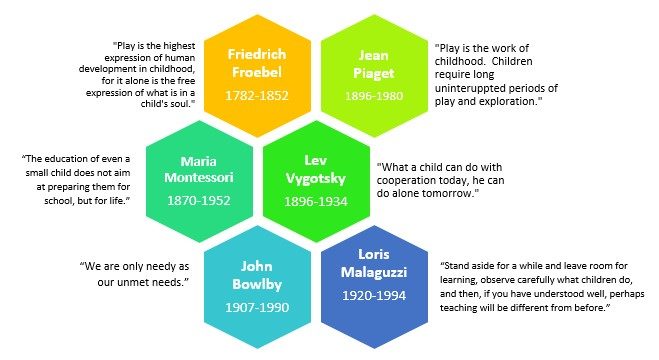John Bowlby – 1907-1990
“Bowlby’s evolutionary theory of attachment suggests that children come into the world biologically pre-programmed to form attachments with others, because this will help them to survive.”
(Bowlby’s Attachment Theory, Dr Saul McLeod, updated 2017).
John Bowlby was a British psychiatrist and psychoanalyst best known for developing attachment theory, which revolutionized our understanding of child development. He proposed that infants are biologically predisposed to form strong emotional bonds with primary caregivers as a means of survival, and that the quality of these early attachments profoundly shapes emotional, social, and cognitive development throughout life. Through his research—especially his work with children separated from their parents—Bowlby emphasized the importance of a secure, responsive caregiver relationship and highlighted the potential long-term effects of early deprivation or loss. His ideas laid the foundation for modern developmental psychology and continue to influence contemporary practices in parenting, therapy, and education.
Friedrich Froebel – 1782-1852
“A Froebelian approach is not a method. There is no formula or recipe to follow or set of equipment to purchase or prescribed curriculum to adhere to. Nor is it a series of ideas and activities which practitioners can dip into and out of. Rather it is a whole way of thinking about children and childhood, based on a set of values and principles.”
(Realising the Ambition, Education Scotland, Tovey, 2013, p. 103)
Friedrich Froebel was a German educator and the founder of the kindergarten movement, widely regarded as a pioneer of early childhood education. He believed that young children learn best through structured play, hands-on activities, and interaction with nature, viewing play as the highest expression of human development in childhood. Froebel designed a series of educational materials known as “Froebel’s Gifts,” which encouraged creativity, sensory exploration, and self-directed learning. His emphasis on nurturing each child’s innate curiosity and potential helped shape modern preschool education and continues to influence early learning practices worldwide.
Loris Malaguzzi (Reggio Emilia) – 1920-1994
“Our task is help children communicate with the world using all of their
potential, strengths and languages, and to overcome any obstacle
presented by our culture.”
Loris Malaguzzi
“The Reggio Emelia Approach offers a philosophy, which is centred on the
image of the child. Carla Rinaldi writes that right from the moment of birth,
the child should be viewed as competent, a fully participating citizen who
possesses rights. The child has rights rather than needs and the role of the
practitioners is to ensure that these rights flourish. Children from birth are
viewed as strong, powerful and rich in potential and resources. The Reggio
Approach is a way of being, living and learning rather than a rigid curriculum
to be adhered to or delivered.”
(Realising the Ambition, Education Scotland, 2020, p. 106)
Maria Montessori – 1870-1952
“To aid life, leaving it free, however, to unfold itself, that is the basic task of the educator.” Maria Montessori
Maria Montessori was an Italian physician and visionary educator whose pioneering work transformed early childhood education. Through careful observation, she developed a child-centred approach that emphasizes independence, hands-on learning, and respect for each child’s natural development. Her method introduced thoughtfully prepared environments, self-directed activities, and specially designed learning materials that encourage curiosity and intrinsic motivation. Montessori’s ideas continue to influence schools worldwide, shaping how educators understand the potential and dignity of every child.
Jean Piaget – 1896-1980
“Play is the work of childhood.” Jean Piaget
Jean Piaget was a Swiss psychologist renowned for his ground-breaking work on child development and cognitive psychology. He proposed that children actively construct knowledge through a series of developmental stages, each marked by distinct ways of thinking and understanding the world. Piaget’s theories emphasized the importance of hands-on exploration, problem-solving, and interaction with the environment as essential to learning. His influential research reshaped educational practices and remains foundational in understanding how children learn, reason, and grow intellectually.
Lev Vygotsky – 1896-1934
“What a child can do today with assistance, she will be able to do by herself tomorrow.” Lev Vygotsky
Lev Vygotsky was a Russian psychologist whose influential theories transformed our understanding of how children learn and develop. He emphasized the central role of social interaction, language, and culture in shaping cognitive growth, proposing that learning first occurs between people before becoming internalized by the individual. Vygotsky introduced key concepts such as the Zone of Proximal Development and scaffolding, highlighting the importance of guided support in helping learners reach their potential. His ideas continue to guide modern educational practices and remain foundational in developmental psychology.

